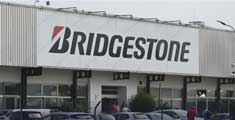
Against the back of tough times in the automotive industry as a result of the Covid-19 pandemic, two tyre majors have announced plant closures recently.
Germany-based Continental plans to close a tyre plant in the city of Aachen in northwestern Germany by the end of 2021, resulting in the loss of 1,800 jobs.
The Hannover-based technology firm had earlier on stated that the group’s net profit plunged 41% to EUR485 million in the second quarter and that it would be undertaking a restructuring with 30,000 jobs globally to be “modified, relocated or made redundant”, including 13,000 in Germany, as it aims to save more than EUR1 billion from 2023.
As for the plant closure, the company blamed “persistently low global vehicle production as well as the deepening economic crisis as a result of the coronavirus pandemic.”
However, according to trade union IG BCE, which represents the company’s rubber division employees, the factory was “in the black” up until the spring of 2020.

Meanwhile, Japanese tyre maker Bridgestone is also facing a similar situation and will cease activity at its Bethune plant in France in the second quarter of 2021, affecting 863 employees.
It adds, “Given the challenging long-term evolution of the industry in the European passenger tyre market, Bridgestone has to consider structural measures to ensure the reduction of its production overcapacity and improve its cost efficiency. After carefully studying all the potential options, the company intends to stop all activity at the Bethune plant, as it is the only viable path to safeguard the competitiveness of Bridgestone’s operations in Europe.”
It goes on to say that it will reassign employees to other Bridgestone activities in France and “initiatives to facilitate external redeployment, will be proposed by the company and discussed in detail with employee representatives in the coming months”.
Furthermore, Bridgestone says it will also actively search for a buyer for the site.
Bridgestone claims that the current industry context for passenger tyres is threatening its competitiveness in the European market, without the Covid-19 pandemic.
“For the last several years, the market for passenger tyres has been facing strong headwinds – even without taking into account the impact of the Covid-19 pandemic. The passenger tyre market has seen its volumes stabilize over the last few years (average annual growth < 1%) while competition from low-cost Asian brands continues to increase (market share of 6% in 2000 increased to 25% in 2018) leading to general production overcapacity,” says the company.
The above has resulted in pressure on pricing and margins, as well as overcapacity in the Low Rim Diameter (LRD) segment, given a declining demand in LRD. And within Bridgestone’s overall European footprint, the Bethune plant is the least well positioned and least competitive.
Over the last years, Bridgestone says it has also taken several measures, including attempts to increase the competitiveness of the Bethune plant. These have proven to be insufficient and Bridgestone has been losing money on tyres produced in Bethune for several years. Considering the current market dynamics, no improvement in the situation is foreseeable, the firm concludes.
